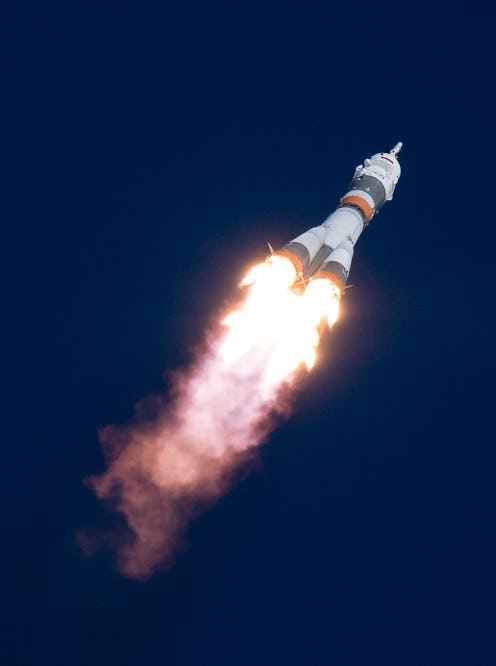Life
This Astronaut’s Genes Changed After A Year In Space & It’s Super Creepy

Heads-up, y'all: Science has officially confirmed that space can change our DNA. Astronaut Scott Kelly, who tweeted his way through his #YearInSpace aboard the International Space Station in 2015, is one of the subjects of what NASA calls its "perfect nature versus nurture study," aka the Twins Study. The study's findings show that while he was in space, he went through an "unexpected" genetic change, TIME reported. His identical twin brother Mark Kelly, who is also an astronaut, served as the control in the study, and according to NASA's findings, Scott's DNA is, thanks to "hundreds of unique mutations," now 7 percent different from Mark's — a phenomenon some call the "space gene," according to NASA's write-up of the Twins Study findings.
The Twins Study findings are novel in part because of the duration of Scott's stay in space; investigating what happened to his body during his #YearInSpace will help researchers figure out what will happen to astronauts who take part in Mars missions, where they'll be off Earth for three years.
"NASA has a grasp on what happens to the body after the standard-duration six-month missions aboard the International Space Station, but Scott Kelly’s one-year mission is a stepping stone [...] to Mars," NASA said in its writeup. As it turns out, what happens is that, according to Scott's genes, not all the astronauts' DNA will return to normal once they're back on Earth. Ninety-three percent of Scott's DNA remained the same, but the changed 7 percent "point[s] to possible longer term changes in genes related to his immune system, DNA repair, bone formation networks, hypoxia, and hypercapnia," NASA said.
While further information about those changes and what they mean for Scott will take more research, the basic finding is the same: Scott and Mark are no longer genetically identical twins.
Other effects space had on Scott included his telomeres ("endcaps of chromosomes that shorten as one ages," NASA explained) actually lengthening while he was in space. But unfortunately, space isn't the fountain of youth. Unlike Scott's DNA, his telomeres went back to normal within two days of his return to Earth, NASA said.
As part of the Twins Study, NASA also compared Scott's inflight data to Mark's on the ground, and found there were "no significant decreases in Scott's cognitive performance," but that "a more pronounced decrease in speed and accuracy was reported postflight," which NASA attributes to Scott readjusting to Earth's gravity.
Kelly shared NASA's findings on his Twitter Mar. 10, joking, "This could be good news! I no longer have to call @ShuttleCDRKelly my identical twin brother anymore."
According to NASA, all the findings from the Twins Study will be used to evaluate how our bodies are affected by space — and in turn will be able to know more about what effects to expect when we send astronauts to Mars and beyond. NASA plans to release a full summary of the study's findings later this year, but from what scientists have already said, the Twins Study's findings appears to have plenty of potential benefit for future space explorers.
"The Twins Study has benefited NASA by providing the first application of genomics to evaluate potential risks to the human body in space," NASA wrote in its writeup. "Research from the landmark Twins Study will inform NASA's Human Research Program studies for years to come, as NASA continues to prioritize the health and safety of astronauts on spaceflight missions."
It may be a little creepy to know that going into space can literally rewrite our DNA, but considering we're all made of stardust anyway, it's also pretty dang cool.